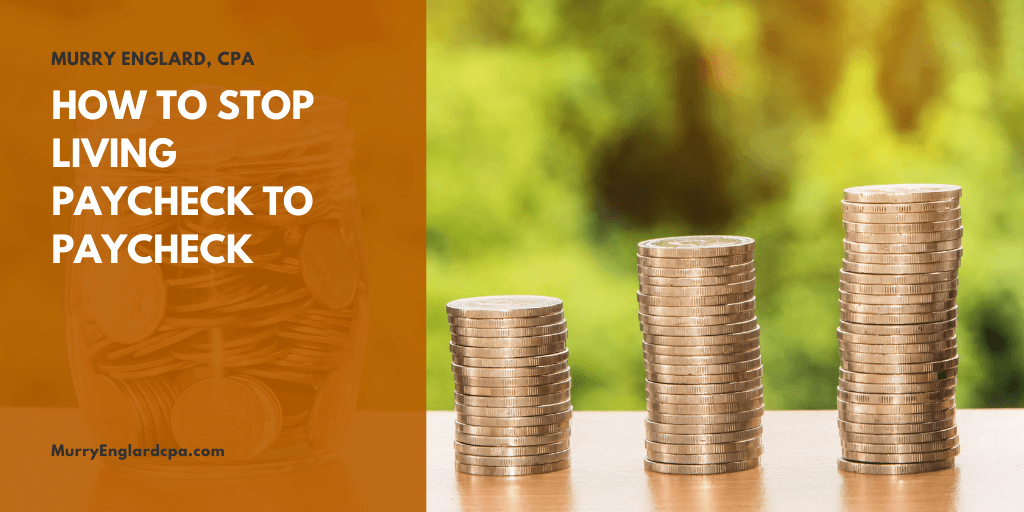Are you ready to stop living paycheck to paycheck? Can you imagine a life where you don’t scramble at the end of the month, worried about how to get everything paid? It can take focus, hard work, and for some, it may be a radical shift in how you handle your finances. It can also create peace of mind and transform your bank account.
Living from month to month can become something you get so used to that it’s hard to imagine a way out. You know there is a way out for other people, but not you. This mindset is built to keep you in old habits. Moving away from this is the first step to stop living from paycheck to paycheck and better your financial health.
Learning to Budget is Essential
The most famous budgeting rule is the 50/20/30 rule. In this system, 50% of your earnings go to your essential costs. These are things like your rent, food costs, health insurance, and car payment. These are non-negotiables. Then, 30% of your income should be for fun expenses. Are you saving for a vacation? Are you going out dancing? That comes from your 30%. Your last 20% of your income goes to your savings. If you have debt, then 10% goes to debt, and 10% goes to saving for long term goals, like retirement.
When you take a look at your paycheck and your budget, are you able to live with the 50/20/30 rule? If your living expenses go over the 50%, can you move to a place where this becomes viable? Can you get a roommate? If you can’t lower your expenses, what can you do to increase your income? This may look like going after a raise at work, or taking a second job. If you want to move away from living paycheck to paycheck, you’ll need to make a budget that realistically works for you so you can manage your finances for the long term.
Don’t Rely on Credit Cards
Ideally, your balances should be paid in full every month. You don’t want to build up debt you can’t get away from. Make getting out of debt a priority with your budget, so you don’t lose your income to interest fees.
Save an Emergency Fund
You won’t fall back on credit cards or other ways of falling into debt if you have an emergency fund to catch you when things come up. Make a regular savings habit by using an app that will automatically contribute some of your income to your emergency fund. Start with a small goal of five hundred dollars and then build toward saving a six-month emergency fund.
Cut Back On Your Spending In Small Amounts
If you have been spending too much money, it may not be realistic for you to cut back all at once. Instead, set small goals to continue cutting back until you get your spending down. For example, can you use a cheaper grocery store and cut back on your bill by a small amount each week? If you get coffee to go every day, can you make it every other day?

